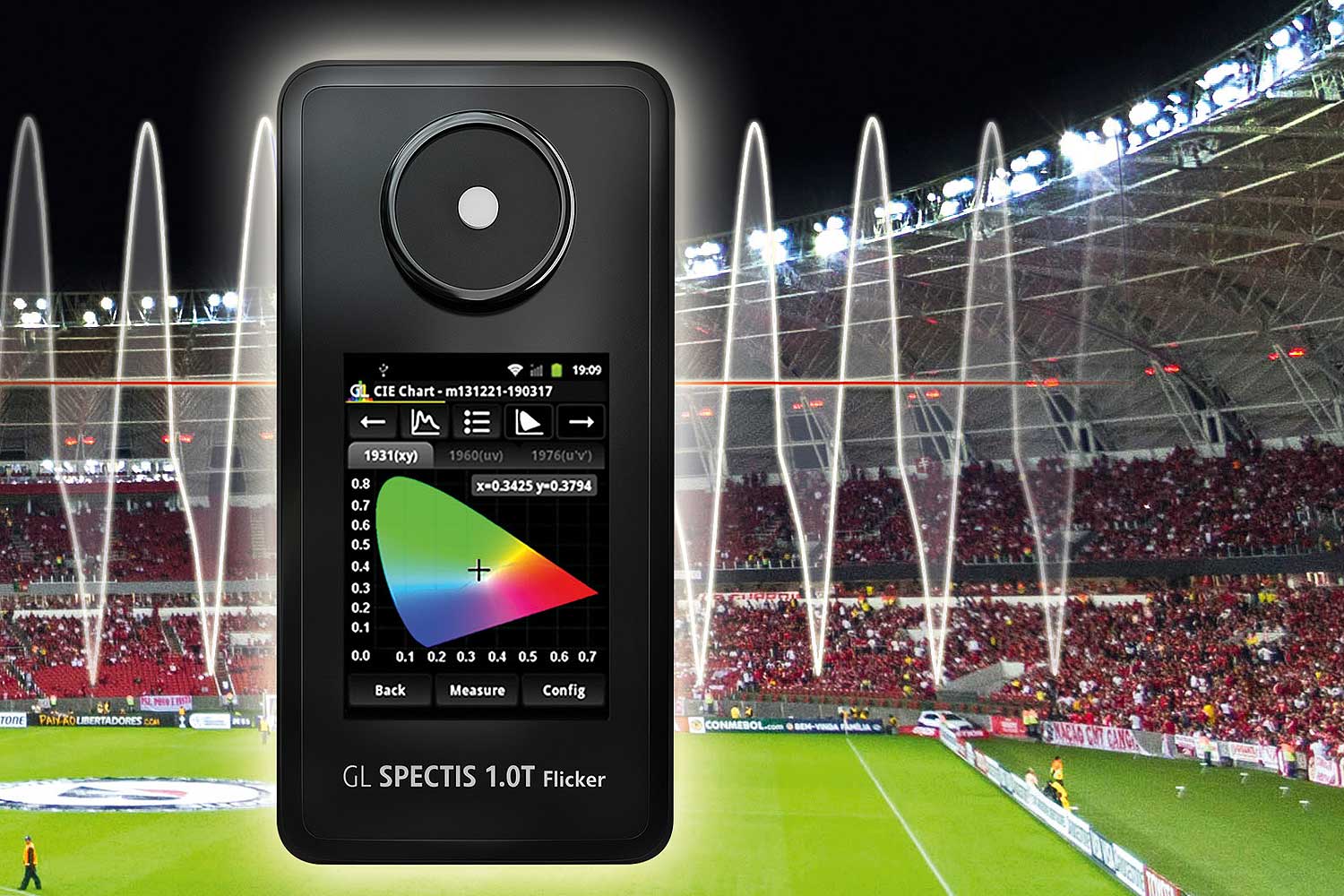 With new LED lighting applications, the problem of flicker in slow-motion video has resurfaced. There was a time when this was a very common phenomenon with fluorescent lighting, but as technical improvements were made to the ballasts, the problem was largely eliminated. Today the main source of such flicker is LED lighting with particular drivers supplying power to the lights. At sports facilities, having optimal illumination and minimal flicker in the lights are important factors to consider when installing LED lighting. The lighting at FC Chelsea’s famous Stamford Bridge stadium (Fulham, London, England) was recently replaced with LED lighting that creates unique illumination effects and dazzeling light displays.
With new LED lighting applications, the problem of flicker in slow-motion video has resurfaced. There was a time when this was a very common phenomenon with fluorescent lighting, but as technical improvements were made to the ballasts, the problem was largely eliminated. Today the main source of such flicker is LED lighting with particular drivers supplying power to the lights. At sports facilities, having optimal illumination and minimal flicker in the lights are important factors to consider when installing LED lighting. The lighting at FC Chelsea’s famous Stamford Bridge stadium (Fulham, London, England) was recently replaced with LED lighting that creates unique illumination effects and dazzeling light displays.
Flicker-free lighting is extremely important for slow-motion replays that show home TV viewers exactly what happened, something which is now taken for granted in professional sports. At frame rates up to 480 fps for slow-motion sequences, modulation of the artificial light output can produce perceptible brightness variations. Normally, up to a certain frequency, our persistence of vision compensates for light modulation, which is why we generally do not notice fluctuations in light caused by the alternating current powering lights. During the planning and design phase, the use of professional light meters is essential to verify the proposed lighting system has minimal flicker.
GL Optic light measurement instruments were used during installation of the the new LED playing field lighting at Stamford Bridge. Mike Simpsons, Director of Engineering & Design at Philips Lighting, stressed that “The GL Optic device allows us to rapidly and accurately assess the quality of LED-based lighting installations. The GL SPECTIS 1.0 touch is a very fast spectrometer and easy to use in the field”.
The new mobile GL SPECTIS 1.0 T Flicker spectrometer from GL Optic is suitable for measuring flicker in the signal range 0.1 Hz – 12.5 kHz. The user can take measurements of lights sources and LED floodlights. To fully characterize and compare light sources, the GL SPECTIS 1.0 T Flicker can process recognized flicker parameters such as flicker frequency, flicker index and flicker factor. The instrument can also be used to capture other photometric and colorimetric data such as illuminance, colorimetric locus and color rendering index, and displays the analysis results on the color touchscreen. Due to the ever more demanding quality expectations and detrimental effects on video and film production, flicker has become a major issue at sports facilities. The GL SPECTIS 1.0 T Flicker from GL Optic can be used to detect, characterize and ultimately avoid flicker.
GL Optic
www.gloptic.com


